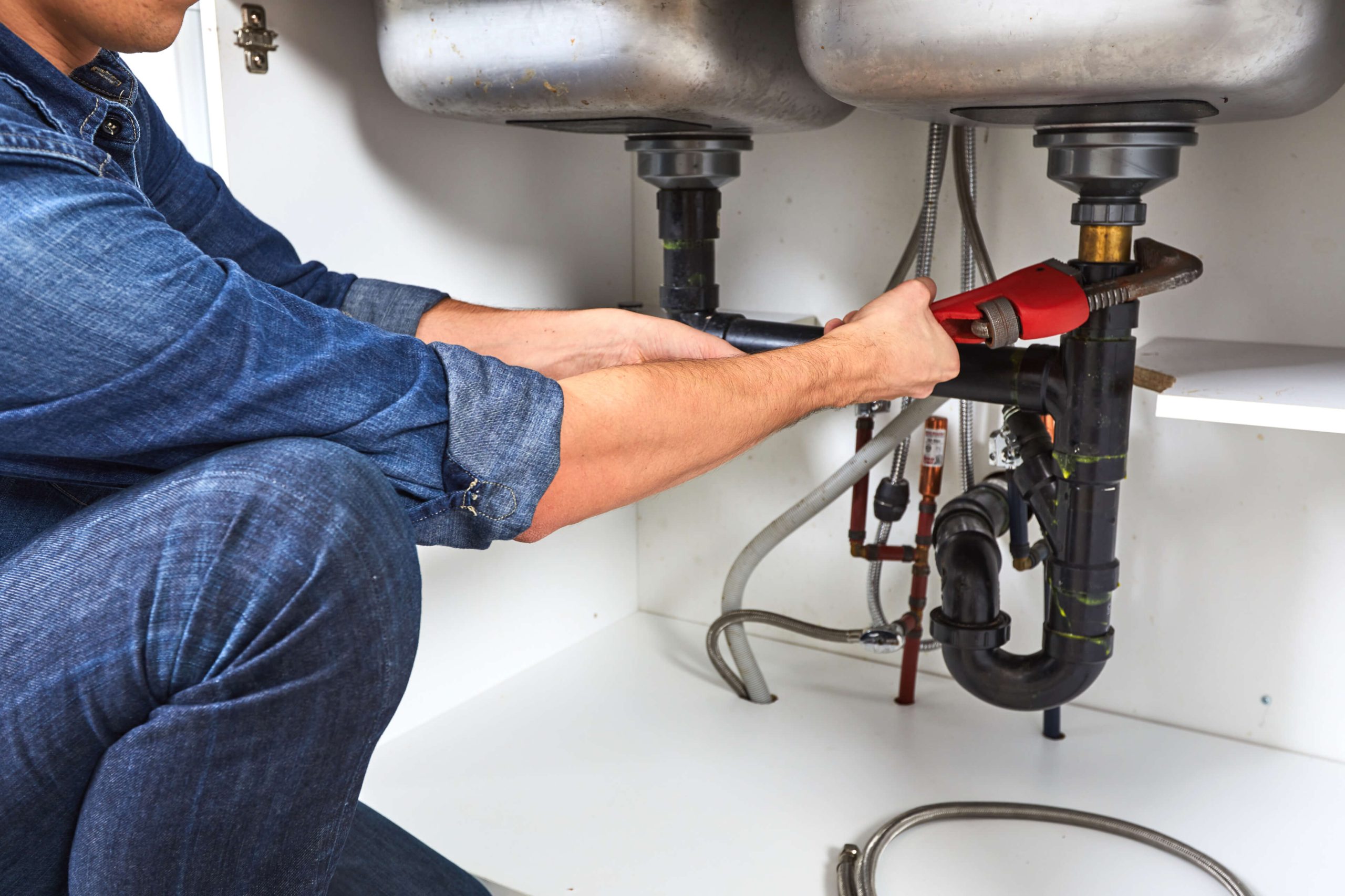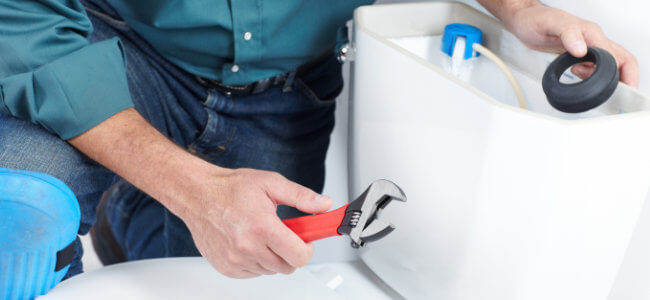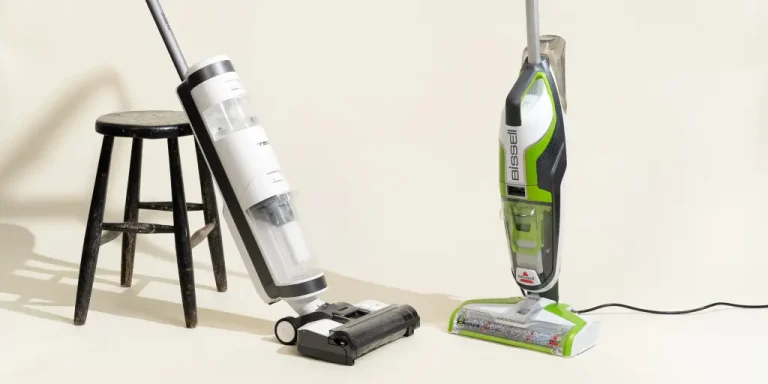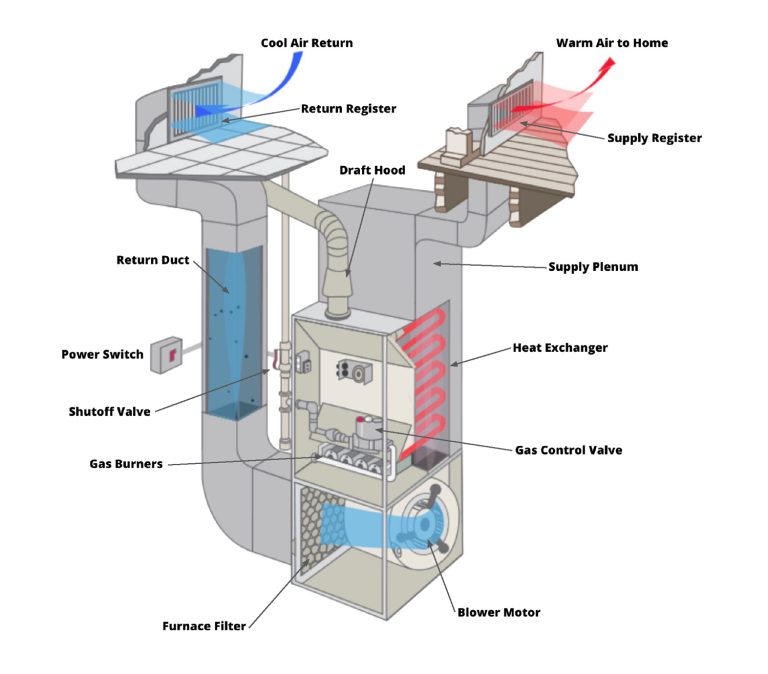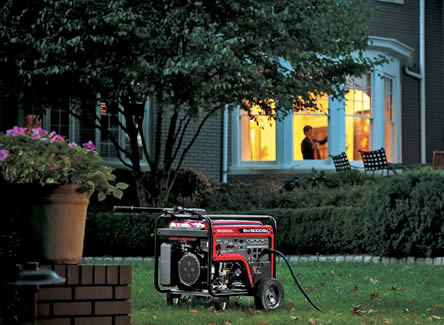How Do You Know When To Call A Plumber?
When there is a plumbing issue in your home, it can be hard to know when to call a plumber. It’s important to determine whether the issue is something you can handle yourself or if it’s time to call in the professionals. Plumbers are skilled experts in their field and can help solve complex plumbing issues, so it’s important to know when to call one in for help. Some common signs that it’s time to call a plumber include a toilet that won’t flush, a leaking pipe, a clogged drain, or a burst pipe. If you’re unsure whether you can handle the issue yourself, it’s best to call a professional for advice and a possible repair.
Recognizing Signs of a Plumbing Problem
Knowing when to call a plumber can be a tricky task. It’s important to recognize the signs of a plumbing problem early on, as the longer you wait, the more expensive the repairs may be. The first sign of trouble is often a funny smell coming from the drainage system. If you smell a foul odor, you should consider contacting a plumber.
Another sign that you may need a plumber is if you hear gurgling or bubbling sounds coming from your pipes or drains. This is a clear indication that there’s a blockage somewhere in your plumbing system that needs to be addressed. Additionally, if you notice a slow draining sink or shower, this could be a sign of a clogged pipe.
If you’re experiencing water pressure problems, you should also consider calling a plumber. Low water pressure can be caused by several different issues, from corroded pipes to blocked filters. A professional plumber will be able to diagnose the issue and recommend the best course of action.
In general, if you’re having any kind of plumbing issue, it’s best to call a professional plumber. They’ll be able to identify the source of the problem and provide the best solution. By addressing any plumbing issues promptly, you can avoid more expensive repairs down the line.
Common Plumbing Issues
Most people have experienced a plumbing issue in their home at one point or another. It is important to know when to call a plumber and when the issue can be resolved with a DIY solution. Common plumbing problems include clogged drains, leaky faucets, running toilets, and poor water pressure. The severity of the issue and the expertise needed to fix it will determine whether you should call a professional.
For clogged drains, a plunger or a drain snake is usually enough to get the job done. If the clog is too deep, then a plumber may be needed to help clear the drain and perform a more thorough inspection. Leaky faucets can usually be fixed by replacing the washer, but if the problem persists, then a plumber may be able to identify the underlying cause. Running toilets can be a sign of a faulty flapper or a more serious issue in the plumbing system. A plumber will be able to detect the cause and recommend a solution. Poor water pressure is usually caused by a blockage in the pipes, and a plumber can help unclog the pipes and increase the pressure.
If you are unsure whether you should call a plumber or not, it is always best to be safe and contact a professional. Plumbers are experienced in identifying and fixing plumbing problems and can help ensure that your plumbing system is functioning properly.
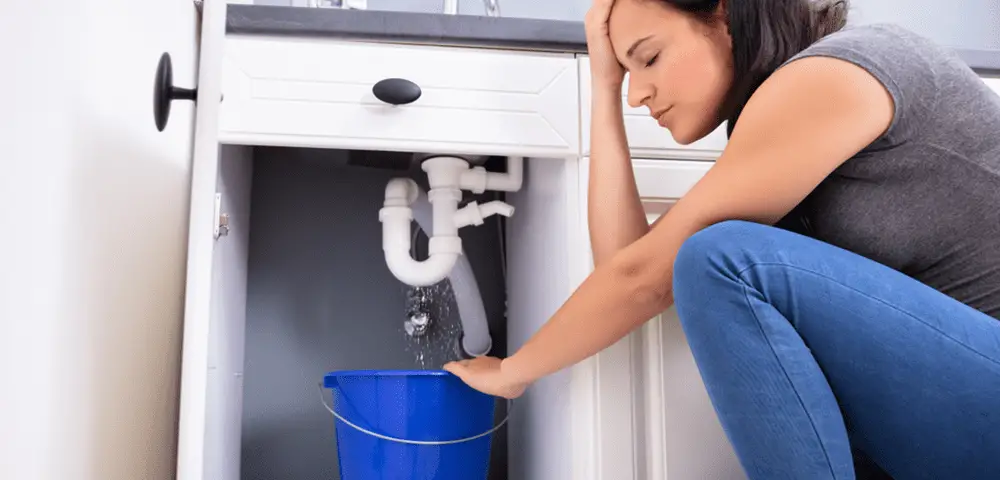
Credit: plymouthplumbers.com
Calling a Professional Plumber
Knowing when to call a professional plumber can be difficult, especially if you’re a first-time homeowner. While some plumbing issues are minor and can be fixed with a few simple DIY fixes, other plumbing problems require the expertise of a professional. Before attempting a DIY plumbing project, consider the benefits of calling a professional plumber.
For starters, professional plumbers are trained and experienced in a variety of plumbing tasks. This means they can quickly diagnose and fix plumbing issues while minimizing potential damage. Additionally, they can help to identify hard-to-spot problems and take steps to prevent them from becoming an issue in the future.
In addition to their knowledge and experience, professional plumbers have access to specialized tools and equipment. This helps them to complete plumbing projects more quickly and efficiently while ensuring the job is completed to the highest standard. Moreover, they are insured and certified, which means any damages or losses resulting from their work will be fully covered.
Finally, professional plumbers can provide valuable advice and recommendations on how to maintain the plumbing system. This can help to reduce the chances of plumbing problems occurring in the future, saving time and money.
Calling a professional plumber can be beneficial in a variety of ways, from identifying and fixing plumbing issues to providing advice and recommendations. Before attempting a DIY plumbing project, consider the benefits of hiring a professional for the job.
Choosing the Right Plumber
Making the right choice when it comes to a plumber is essential to ensure that the job is done correctly and safely. When searching for a plumber, it is important to consider their experience, qualifications, and customer service.
Experience matters when it comes to plumbing. It is essential to ensure that the plumber has the necessary knowledge and skills to complete the job. They should have a valid license to practice, and be able to provide proof of their experience and qualifications. It is also important to check that the plumber is insured and bonded.
Customer service is another key factor when it comes to hiring a plumber. Make sure to ask questions and ensure that the plumber is willing to answer them and provide clear and detailed information. It is also important to check references and reviews from other customers to find out about their experience.
By considering these factors, you can ensure that you are making the best choice when it comes to selecting a plumber. With the right qualifications, experience, and customer service, you can rest assured that the job will be done correctly and safely.
Avoiding DIY Plumbing
It’s important to know when to call a professional plumber for help with any plumbing project. DIY plumbing can be tempting, but there are some projects that you should never attempt on your own. Plumbing projects that require specialized tools, expertise, and experience should be left to the professionals. Trying to save a few dollars by doing the job yourself could end up costing you more in the long run if something goes wrong.
Knowledge is key when it comes to plumbing. Not knowing how to complete a plumbing project can lead to costly mistakes. It is best to leave all plumbing projects to a professional plumber who has the right tools and experience to complete the job right the first time.
DIY plumbing projects can also put you at risk of injury. Plumbing projects often require lifting and carrying heavy materials, maneuvering in tight spaces, and dealing with hazardous materials. Professional plumbers have the tools and experience to complete these projects safely and efficiently.
It’s important to know when to call a professional plumber for help. Don’t be tempted by the idea of saving a few bucks by taking on a plumbing project yourself. You may end up with more problems than you started with. Leave the plumbing to the professionals and save yourself time, money, and potential injury.
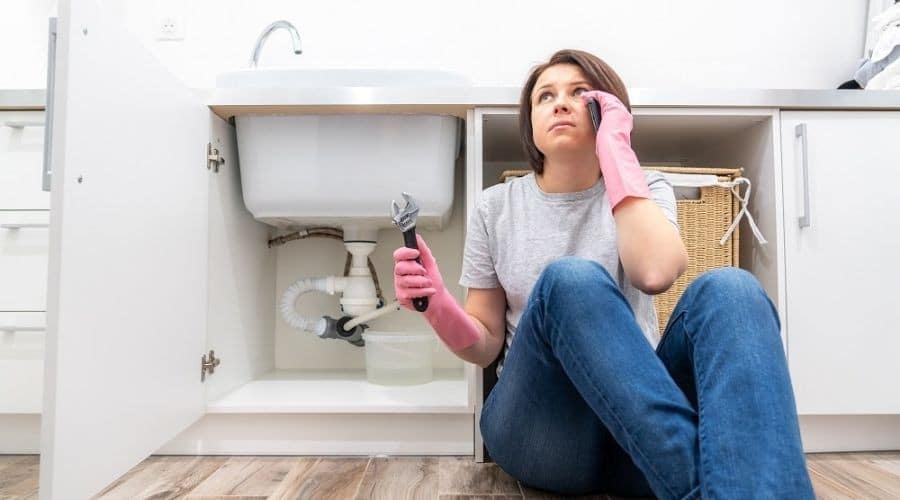
Credit: nixcoplumbing.com
Tips for Maintaining Your Plumbing System
Maintaining your plumbing system is essential to the longevity of your home or business. It’s important to be aware of the warning signs that may indicate a plumbing issue is present that requires professional assistance. Knowing when to call a plumber is essential for avoiding potentially costly repairs. Here are some tips to help you keep your plumbing system running smoothly:
1. Check for Leaks. A slow leak can lead to costly water damage, so it’s essential to inspect your plumbing system regularly. If you notice any discoloration or water pooling, contact a plumber right away.
2. Clean Your Drains. Clogged drains can cause serious plumbing problems, so it’s important to clean your drains regularly. Use a drain cleaning solution or natural ingredients like baking soda and vinegar to keep your drains clog-free.
3. Test Your Water Pressure. Low water pressure can be a sign of a larger issue. If your water pressure suddenly drops and doesn’t improve, it’s time to call a plumber.
4. Inspect Your Water Heater. Water heaters can fail if they are not properly maintained. Regularly inspect and drain your water heater to ensure it is functioning properly.
By following these tips, you can keep your plumbing system in good condition and avoid costly plumbing repairs. If you notice any signs of plumbing problems, contact a qualified plumber as soon as possible to avoid further damage.
Common Plumbing Safety Tips
Knowing when to call a plumber can be difficult. It’s important to know when to take matters into your own hands and when to call a professional. To help you determine when to call a plumber, here are some common plumbing safety tips.
For starters, if you notice any kind of water leakage, call a plumber right away. Even small water leaks can cause water damage and mold growth, leading to costly repairs. Similarly, if you notice any kind of corrosion, rust, or discoloration in your pipes, it’s best to have a professional inspect them for any potential problems.
Another plumbing safety tip is to be aware of the potential for water damage. If you have a water heater that is more than a few years old, it may be time to call a plumber. An older water heater can become a fire hazard due to corrosion and buildup of sediment. A plumber can inspect the water heater, drain any sediment, and advise you if it is time to replace the unit.
Finally, if you are remodeling your home or replacing any fixtures, it is best to call a plumber. A plumber can help ensure that the plumbing is installed correctly and that any water leaks are prevented.
By following these common plumbing safety tips, you can save yourself time and money in the long run. Knowing when to call a plumber can be the difference between a minor repair and a major plumbing disaster.
Troubleshooting Plumbing Problems
Troubleshooting plumbing problems can be a tricky and daunting task, especially when you’re not sure of the issue. It can be hard to tell when you should call a plumber and when you can tackle the issue yourself. Fortunately, there are a few ways to determine when it’s time to call in a professional.
For minor plumbing issues, such as a running toilet, a clogged sink, or a slow-draining bathtub, you can often troubleshoot them yourself. If you’re comfortable with basic tools and repairs, you may be able to fix the issue yourself. However, if the problem persists or you’re not confident in your DIY skills, it’s best to call a plumber.
When it comes to more complex plumbing issues, such as a pipe burst, plumbing leak, or sewer line blockage, it’s best to call a professional right away. These types of issues require specialized skills and tools, and they need to be addressed quickly to prevent further damage.
When it comes to plumbing problems, it’s important to know when it’s time to call a professional. If you’re not sure of the issue or lack the skills to handle the repairs, it’s best to call a plumber. Not only will they be able to properly diagnose the issue and provide a solution, but they will also be able to do so safely and efficiently.
FAQs About the How Do You Know When To Call A Plumber?
1. How can I tell if I need to call a plumber?
A: If you are experiencing any plumbing issues, such as a clogged drain, leaking pipe, or burst pipe, it is important to contact a professional plumber. A plumber can assess the issue and provide an appropriate solution.
2. What type of plumbing problems can a plumber help with?
A: Plumbers are equipped to help with a variety of plumbing problems, including clogs, leaks, burst pipes, water heater issues, and more. If you are unsure of the issue, it is best to contact a professional plumber for an assessment.
3. Are there any DIY solutions I can try before calling a plumber?
A: Depending on the issue, there may be some DIY solutions you can attempt before calling a plumber. For example, you may try unclogging a drain with a plunger or using a snake to remove an obstruction. However, it is important to contact a professional plumber if the issue persists or if you are unsure of the cause.
Conclusion
If you’re dealing with a plumbing issue that you can’t resolve yourself, it’s best to call a professional plumber. A plumber can assess the problem and provide the necessary repairs or replacements to ensure that your plumbing is functioning properly. It’s important to act quickly if you suspect a problem, as plumbing issues can quickly become more serious and expensive if left unchecked.
